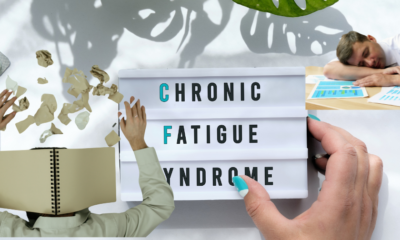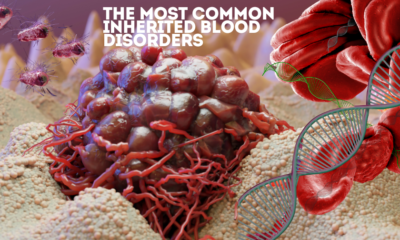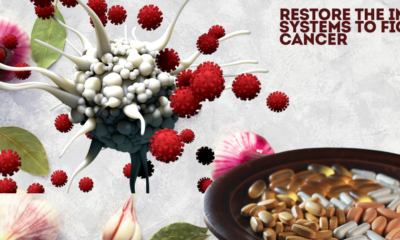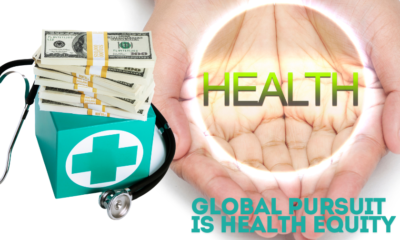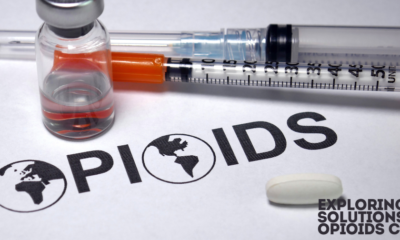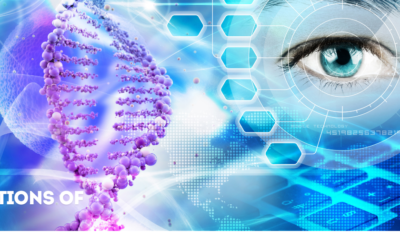Healthcare
Breast Cancer Awareness: The Importance of Early Detection
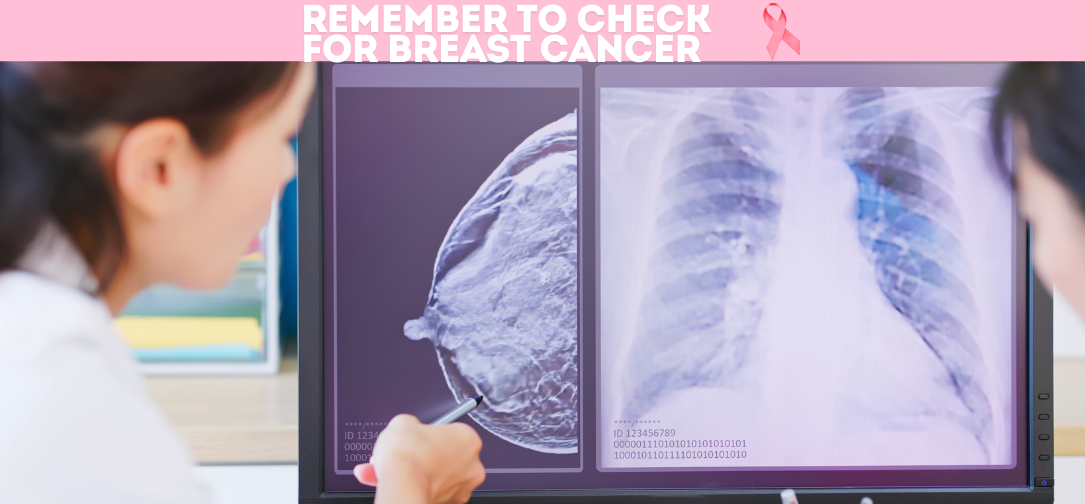
Every October marks Breast Cancer Awareness Month, a global health initiative that seeks to raise awareness about breast cancer, its prevention, early detection, and treatment. In recent years, the significance of early detection has become a central theme in discussions surrounding breast cancer, as it dramatically improves survival rates and treatment outcomes. This article delves into the importance of early detection, current diagnostic methods, the role of awareness campaigns, and the global burden of breast cancer.
The Global Impact of Breast Cancer
Breast cancer is the most common cancer globally, affecting 2.3 million women annually, with approximately 670,000 deaths in 2022 alone. According to the World Health Organization (WHO), it accounts for one in eight cancer cases and one-quarter of all cancers in women worldwide. Notably, breast cancer is not limited to specific regions or demographics, affecting women across all age groups and socio-economic statuses. In countries with high Human Development Index (HDI) scores, one in 12 women will be diagnosed with breast cancer during their lifetime, underscoring the widespread nature of the disease.
The Role of Early Detection in Survival Rates
Early detection of breast cancer plays a critical role in improving survival rates. When breast cancer is identified in its initial stages, before it has spread beyond the breast or lymph nodes, treatment becomes more effective, and the chances of full recovery increase. According to Lee Health, women who discover breast cancer early, typically through screening, have a 99% five-year survival rate.
Regular screenings, such as mammograms, breast self-exams, and clinical exams, are vital tools for early detection. For instance, mammograms are recommended annually for women aged 40 and older, although individuals with a family history or genetic predisposition may start earlier screenings. The American Cancer Society emphasizes that early detection through mammograms can reveal breast cancer before any physical symptoms manifest, significantly improving prognosis.
Diagnostic Tools for Early Detection
Breast cancer screening methods are continually evolving, offering a range of diagnostic tools that enable early detection. The most commonly used techniques include:
Mammograms: A standard and widely recommended tool, mammograms use X-rays to detect abnormalities in breast tissue. These can identify lumps or irregularities before they become physically palpable. Women are advised to undergo annual mammograms starting at age 40, but those with a high-risk profile, such as a family history of breast cancer, may need to start earlier.
Breast Self-Exams (BSE): Monthly self-exams allow women to familiarize themselves with the normal look and feel of their breasts. According to breast cancer specialists, BSEs can lead to the early identification of lumps or changes in breast tissue, which can then be further examined by healthcare professionals.
Ultrasound and MRI: For women with dense breast tissue, mammograms may not always provide the most accurate results. In these cases, ultrasound or Magnetic Resonance Imaging (MRI) may be used as supplemental screening tools to provide more detailed images.
Challenges in Low-Income and Developing Regions
While early detection has proven to be a life-saving strategy, there are significant disparities in access to screening and diagnostic tools across the globe. In low-income and developing countries, the availability of mammograms and advanced diagnostic technologies is limited. Consequently, breast cancer is often diagnosed in its later stages when treatment options are fewer, and the disease is more likely to be fatal. For instance, the WHO reports that in low-HDI countries, while fewer women are diagnosed with breast cancer (1 in 27), a larger proportion (1 in 48) succumb to the disease.
Efforts are underway to bridge these gaps. The WHO’s Global Breast Cancer Initiative aims to reduce breast cancer mortality by promoting access to early detection, timely diagnosis, and comprehensive treatment, particularly in resource-constrained settings.
Awareness Campaigns: Bridging the Knowledge Gap
Public awareness campaigns during Breast Cancer Awareness Month are crucial for educating women on the importance of early detection and available screening methods. Campaigns typically emphasize:
- The Importance of Regular Screening: Raising awareness about mammograms, self-exams, and clinical exams can prompt more women to seek early detection measures. Organizations like the American Cancer Society and regional health centers worldwide disseminate guidelines on when and how women should be screened.
- Addressing Myths and Misconceptions: Many women, especially in rural or underserved areas, hold misconceptions about breast cancer, such as the belief that it only affects older women or that a lack of family history eliminates the risk. Awareness campaigns help dispel these myths by emphasizing that breast cancer can affect any woman, regardless of age or background.
- Access to Support Networks: Support groups and networks for breast cancer patients and survivors have also been key in awareness efforts. These initiatives aim to ensure that no woman faces breast cancer alone, providing emotional and psychological support alongside medical care.
Genetic Factors and Personalized Treatment
In recent years, the role of genetics in breast cancer has received increasing attention. Certain mutations, particularly in the BRCA1 and BRCA2 genes, significantly elevate a woman’s risk of developing breast cancer. Women with these gene mutations may choose to undergo more frequent screenings or preventative surgeries, such as mastectomies, to reduce their risk. Genetic counseling and testing have thus become essential tools in the personalized management of breast cancer.
Moreover, advances in genetic research have led to the development of targeted therapies that are tailored to an individual’s genetic profile. Treatments such as hormone therapy or HER2-targeted drugs offer more effective options for specific subtypes of breast cancer, improving survival rates and reducing recurrence.
Multidisciplinary Care: The Importance of Holistic Treatment
A breast cancer diagnosis involves more than just medical treatment; it requires comprehensive care that addresses the physical, emotional, and psychological aspects of the disease. Multidisciplinary breast cancer clinics, like those at Lee Health, provide patients with access to a team of specialists, including medical oncologists, surgeons, radiation therapists, nutritionists, and social workers. This holistic approach ensures that patients receive the best possible care while also being supported throughout their treatment journey.
In addition to medical treatment, survivorship care, including follow-up appointments, exercise plans, and dietary counseling, plays a crucial role in helping patients regain control of their lives after breast cancer. Support groups and rehabilitation services are also available to guide patients through recovery.
Conclusion
Breast cancer remains a global challenge, but the power of early detection cannot be overstated. With regular screening, breast self-awareness, and access to modern diagnostic tools, millions of lives can be saved. However, addressing the disparities in access to early detection and treatment remains a key priority, particularly in low-income regions. Public health campaigns during Breast Cancer Awareness Month continue to play a pivotal role in educating women about the importance of early detection, thereby improving survival rates and quality of life for breast cancer patients worldwide.
-

 Business5 days ago
Business5 days agoS&P 500 Soars in Best May in Decades Amid Tariff Relief and Nvidia’s Surge
-

 Healthcare6 days ago
Healthcare6 days agoAttention Economy Arms Race: Reclaim Your Focus in a World Designed to Distract You
-

 Immigration5 days ago
Immigration5 days agoTrump’s Immigration Crackdown: Legal Battles and Policy Shifts
-

 Business5 days ago
Business5 days agoUS Stock Market Soars in May Amidst Tariff Tensions and Inflation Worries
-

 Government5 days ago
Government5 days agoTrump Administration’s Government Reshaping Efforts Face Criticism and Legal Battles
-

 Business5 days ago
Business5 days agoTrump’s Tariffs: A Global Economic Reckoning
-

 Foreign Policy2 days ago
Foreign Policy2 days agoInside Schedule F: Will Trump’s Federal Workforce Shake-Up Undermine Democracy?
-

 Press Release2 days ago
Press Release2 days agoIn2space Launches Campaign to Make Space Travel Accessible for All




